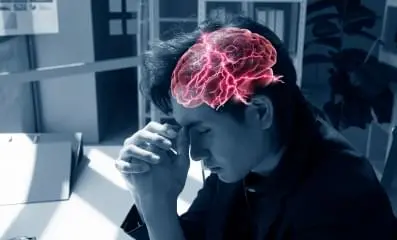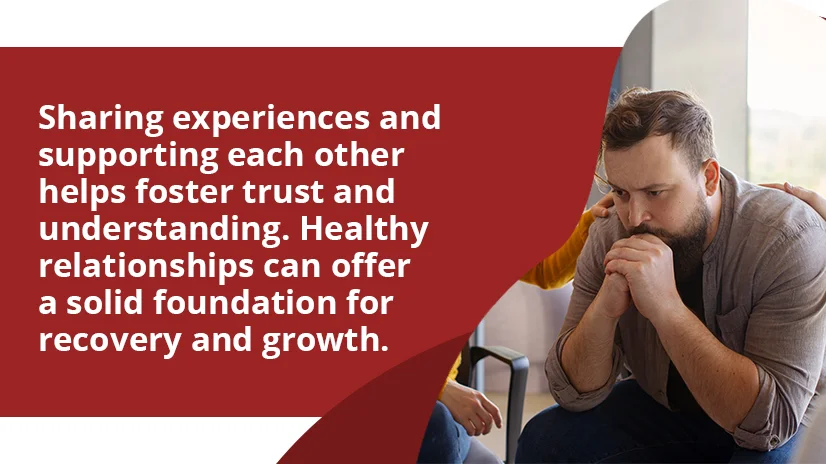
Unlocking Happiness: Tips for Improving Mental Health
Discover effective tips to boost your mental health and well-being.

A holistic approach to mental health recovery integrates physical, emotional, and spiritual well-being into treatment, emphasizing the interconnectedness of mind, body, and spirit. This comprehensive approach goes beyond symptom management to address underlying causes, promoting long-term healing and resilience.
Effective treatment of various mental health conditions requires a well-rounded holistic approach to recovery. Here’s what you need to know:
If you or your family need help with mental health issues, call Indiana Center for Recovery at (844) 650-0064 for long-term holistic mental health care.

Holistic mental health recovery involves addressing the mind, body, and spirit to promote overall well-being. Here are some key components of holistic treatments:
A holistic approach to mental health recovery considers the whole person, including biological aspects. Balancing the body’s needs can significantly impact mental well-being.
Eating a balanced diet is crucial to avoiding mental health problems. Nutritious foods fuel your brain, helping it function properly. Fresh fruits, lean proteins, vegetables, and whole grains provide the necessary vitamins and minerals. Avoiding processed diets and sugary snacks can also prevent mood swings and energy crashes.
Regular physical activity boosts mental health by releasing endorphins, natural mood lifters. Exercise can reduce anxiety, depression, and stress. It also improves sleep, increases energy levels, and enhances overall well-being. You don’t have to be an athlete to benefit; simple activities like walking, yoga, or dancing can make a big difference.
Good sleep hygiene is important for mental health recovery. Establish a regular sleep schedule by going to bed and waking up at the same time every day. Create a calming bedtime routine to signal your body that it’s time to wind down.
Avoid caffeine and electronic devices before bedtime, as they can disrupt sleep patterns. A good night’s sleep can improve mood, concentration, and overall mental health.
Holistic mental health recovery looks at the whole person, not just their symptoms. It includes physical, emotional, social, and spiritual well-being. Patients can find balance and improve their overall quality of life by focusing on all these areas.
Cognitive behavioral or talk therapy helps people change negative thought patterns and behaviors. It teaches individuals to identify harmful thoughts and replace them with positive ones. CBT is effective for many mental health issues, including anxiety and depression.
Through regular sessions, people learn to manage their emotions and reactions better. This therapy empowers individuals to take control of their mental health.
Mindfulness and meditation help people stay present and focused. These practices reduce stress and improve mental clarity. By taking time each day to meditate, clients can lower anxiety and increase their sense of calm.
Mindfulness teaches people to pay attention to their thoughts and feelings without judgment. This awareness helps them respond to challenges in a healthier way.
Effective stress management methods include exercise, proper sleep, and healthy eating. Physical activity releases endorphins that improve mood. Getting enough rest helps the brain function well. Eating nutritious foods supports overall health.
Activities like deep breathing, yoga, and hobbies can also reduce stress. By actively managing stress, individuals can maintain better mental health and well-being.
Social aspects play a pivotal role in holistic mental health recovery, encompassing various dimensions of interpersonal connections, community involvement, and personal engagement. These elements are integral in fostering a supportive environment that nurtures physical health and resilience.
Creating and maintaining strong relationships is crucial for mental health recovery. Building these bonds provides emotional support, reduces feelings of isolation, and enhances your sense of belonging. Engage in open communication, show empathy, and be a good listener.
Sharing experiences and supporting each other helps foster trust and understanding. Healthy relationships can offer a solid foundation for recovery and growth.
Community support plays a dynamic role in holistic mental health recovery. Joining support groups, participating in community events, and volunteering can connect you with people who understand your journey.
This network can offer encouragement, share resources, and provide a sense of belonging. Engaging with your community helps you feel less alone and more supported in your recovery process.
Participating in social activities and hobbies can significantly improve your mental health. Whether joining a sports team, taking a dance class, or pursuing a creative hobby, staying active and involved can boost your mood and reduce stress.
These doings offer chances to meet new people, develop skills, and enjoy life. Find what you love and make it a routine to enhance your well-being.
Spiritual well-being is a significant component of holistic mental health recovery. It encompasses beliefs, values, and practices that give people meaning, purpose, and a sense of connection to something greater than themselves.
According to research studies, spirituality plays a vital role in mental health recovery. It helps practitioners find a sense of peace and purpose. Engaging in spiritual practices can lead to emotional healing, which is crucial for those struggling with mental health issues. Connecting with something greater than themselves can help individuals gain strength and resilience.
Yoga and prayer are powerful spiritual tools that aid in mental health wellness. Yoga combines physical postures, breathing exercises, and meditation to promote relaxation and reduce stress. It helps balance the mind and body and fosters inner peace.
Prayer, on the other hand, provides a way to communicate with a higher power. It offers comfort and hope, which can be immensely helpful during difficult times. Both practices encourage mindfulness and self-regulation, which are essential for holistic recovery.
Finding meaning and purpose is crucial in the journey to mental health recovery. When individuals understand their life’s purpose, they are more motivated to overcome challenges. Engaging in activities that align with their values and passions can bring fulfillment and joy. Individuals can create a more meaningful and satisfying life by actively seeking purpose and enhancing their mental well-being.
Integrative therapies encompass a range of holistic approaches that complement traditional treatments to promote overall well-being. Integrative therapies often include:
Art and music therapy use creative expression to promote mental health recovery. Through painting, drawing, or playing music, individuals can explore emotions and improve self-awareness. These therapies provide a safe space to process feelings, reduce stress, and enhance overall well-being.
Animal-assisted therapy involves interacting with animals to improve mental health problems. Pets, like dogs and horses, offer comfort and companionship, helping reduce anxiety and depression. The simple act of petting an animal can lower stress levels and promote relaxation. Animal-assisted therapy also encourages social interaction and emotional bonding, which are crucial for recovery.
Nature and ecotherapy connect individuals with the healing power of the outdoors. Spending time in nature, whether hiking, gardening, or walking in a park, can significantly improve mood and mental clarity.
Nature therapy helps reduce symptoms of anxiety and depression by promoting physical activity and providing a sense of peace and calm. The natural environment offers a refreshing break from daily stressors, aiding mental recovery.
Acupuncture and Traditional Chinese medicine (TCM) are ancient practices that support mental health and addiction recovery. Acupuncture involves inserting thin needles into specific points on the body to balance energy and alleviate stress.
TCM also includes herbal remedies and dietary adjustments to enhance overall well-being. These methods aim to restore harmony within the body and mind, promoting holistic healing and mental health.
A holistic approach to mental illness considers the person’s mind, body, and spirit, integrating alternative therapies like yoga and meditation alongside traditional methods. This contrasts with traditional treatments that often focus solely on symptoms and pharmaceutical interventions without addressing broader lifestyle or spiritual factors.
A holistic mental health recovery plan may include evidence-based holistic therapies such as cognitive behavioral therapy (CBT), mindfulness practices, art therapy, yoga, acupuncture, nutritional counseling, and meditation. These approaches aim to treat the interconnected aspects of mental well-being, promoting healing and balance across mind, body, and spirit.
Our comprehensive mental health program offers residential and outpatient care tailored to your needs. Whether you are seeking a structured environment or flexible outpatient services, we are dedicated to helping you overcome mental health challenges and reclaim your life.
Experience the transformative power of evidence-based therapies, including cognitive behavioral therapy (CBT) and EMDR, combined with compassionate peer support and effective medication management for lasting change.
Don’t wait another day. Contact us at (844) 650-0064 and discover how our expert care can improve your life.